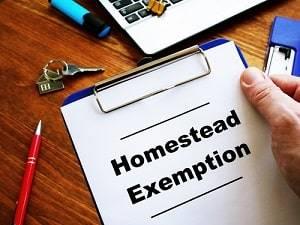Assuming everything goes as planned, you will get your discharge approximately three to four months after you file. A common misunderstanding is that a case is over once the debtor receives a Chapter 7 bankruptcy discharge. A trustee has many reasons to keep the case open long after the discharge. This is especially true if there are assets in the case, such as an upcoming tax refund. If there are assets in the case, the trustee will most likely keep it open. In my experience, asset cases are usually open for at least 12 months, if not longer. In fact, the trustee can keep the case open as long as they want. Your homestead is usually exempt when you file Chapter 7 bankruptcy. However, if homestead equity increases while your case remains open, you could lose it. This is true even if the home still has equity below the maximum homestead exemption after it appreciates.
What if the homestead equity appreciates while the case remains open?
As I have written before, most of the property you own is exempt property you can keep in bankruptcy. The voters increased the homestead amount by passing Proposition 209 in November 2022. However, the trustee may sell your home if it appreciates while the case remains open. This is true, even if the total equity is still below the homestead maximum.
For example, assume you disclose a primary residence with $375,000 of equity. Equity is what the property is worth minus the aggregate amount of all encumbrances (i.e., mortgages, HELOCs, HOA assessments, etc.). For purposes of this article, assume the maximum Arizona homestead amount is $425,200 of equity. Because you have only $375,000 of equity when you file bankruptcy (less than the maximum $425,200), you believe you’re safe.
But now assume the trustee keeps your case open for two years. The home appreciates $50,000 such that the total equity is $425,000. The $375,000 of equity was exempt when you filed Chapter 7. However, the $50,000 of appreciation since the filing is not exempt. The trustee can now force a sale of your home. After the sale, the debtor will receive $375,000 (the exempt equity as of the filing date). The trustee will keep the rest to pay your creditors.
It used to be that if the home appreciated while the case was open, but the equity remained below the applicable exemption maximum, the debtor could still keep the home. That is no longer true after a Ninth Circuit case from 2024. It was a devastating decision for debtors and their attorneys. In light of this case, there is a risk if a homestead appreciates while the case is open. This is why a debtor must hire a competent and knowledgeable bankruptcy attorney who keeps up with all bankruptcy developments. Remember: when a debtor gets a discharge, that does not mean the case is “over”. The case is over whenever the trustee decides to close it.
A competent Arizona bankruptcy attorney can solve this avoidable problem.
If the homestead equity increases while the case is open, you could lose it. This unfortunate scenario is especially true in Arizona because the real estate market is rapidly appreciating.
But there is good news! You must disclose your home and all assets when you file. It is a crime to not disclose and “leave the home out of the bankruptcy”. A competent Arizona bankruptcy lawyer can file the appropriate documents to “abandon” the homestead before it appreciates. Under certain circumstances, a debtor may move to abandon. This is essentially a request to “take the home out of the bankruptcy” after they file the case. This becomes essential if the case remains open for any extended period of time.
I can determine whether a case will likely stay open for an extended period. If so, I may advise requesting an abandonment. This may allow the debtor to retain the appreciation and avoid losing the house. It may cost an additional legal fee. However, that is a drop in the bucket compared to losing the house due to appreciation. And remember: once you file Chapter 7, you can’t get out. You must have a competent lawyer to prevent the risk before the problem comes to fruition.


Hello,
Have you seen any bankruptcy malpractice cases from negligent attorney failing to file an abandonment for their client? I am assuming this should be common knowledge among bankruptcy attorneys in Arizona?
Yes. Most competent attorneys will warn of this possibility, but the attorney will charge extra to file a motion to abandon. A motion to abandon is rarely included in the normal bankruptcy fee, as it is a lot of work and involves litigation. If the attorney doesn’t file the motion to abandon because the client won’t pay the additional fees, and the house appreciates above the homestead exemption while the case remains open, then that is the client’s mistake, not the attorney’s.